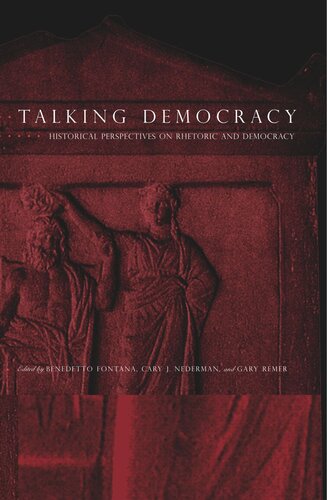

Most ebook files are in PDF format, so you can easily read them using various software such as Foxit Reader or directly on the Google Chrome browser.
Some ebook files are released by publishers in other formats such as .awz, .mobi, .epub, .fb2, etc. You may need to install specific software to read these formats on mobile/PC, such as Calibre.
Please read the tutorial at this link: https://ebookbell.com/faq
We offer FREE conversion to the popular formats you request; however, this may take some time. Therefore, right after payment, please email us, and we will try to provide the service as quickly as possible.
For some exceptional file formats or broken links (if any), please refrain from opening any disputes. Instead, email us first, and we will try to assist within a maximum of 6 hours.
EbookBell Team

4.3
8 reviewsIn their efforts to uncover the principles of a robust conception of democracy, theorists of deliberative democracy place a premium on the role of political expression—public speech and reasoned debate—as the key to democratic processes. They also frequently hark back to historical antecedents (as in the Habermasian invocation of the “public sphere” of eighteenth-century bourgeois society and the Arendtian valorization of the classical Athenian polis) in their quest to establish that deliberative procedures are more than “merely theoretical” and instead have a practical application. But for all this emphasis on the discursive and historical dimensions of democracy, these theorists have generally neglected the rich resources available in the history of rhetorical theory and practice. It is the purpose of Talking Democracy to resurrect this history and show how attention to rhetoric can help lead to a better understanding of both the strengths and limitations of current theories of deliberative democracy.
Contributors, besides the editors, are Russell Bentley, Tsae Lan Lee Dow, Tom Murphy, Arlene Saxonhouse, Gary Shiffman, John Uhr, Nadia Urbinati, John von Heyking, and Douglas Walton.